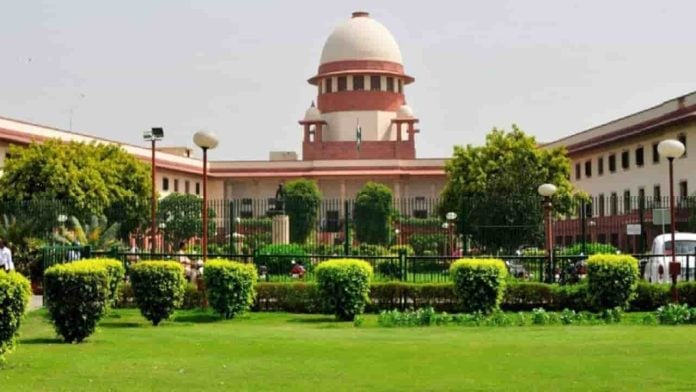The Supreme Court has issued a set of guidelines to ensure better accessibility for candidates with disability to appear in the Common Law Admission Test (CLAT).
The guidelines were issued by the Bench of Chief Justice of India (CJI) DY Chandrachud, Justice PS Narasimha and Justice JB Pardiwala on a plea challenging the stringent conditions imposed by CLAT consortium on persons with disabilities intending to avail scribes.
The court directed the CLAT consortium to provide scribes for people with non-bench mark disabilities as well and issue guidelines along with the advertisement of CLAT.
However, it refused to ask the consortium to allow scribes who were in 12th standard or enrolled with any coaching or preparing for any competitive examination, taking in view the consortium’s submission that
since CLAT was MCQ based and consisted of common subjects such as English, Maths, logical reasoning, and GK, it would be against the integrity of the examination to permit scribes who could assist the candidate with their independent knowledge of the subject.
The CLAT consortium submitted that it had no issues with releasing guidelines along with advertisement and assigning scribes to people with benchmark disabilities.
It further assured that the consortium would provide scribe to anyone who did not have one.
As per the consortium 292 candidates had registered as PwD candidates for CLAT 2023, out of which, 49 candidates opted to arrange a scribe by themselves. It said 33 requests were made for additional accommodation, out of which, 16 asked for scribe. Fifteen candidates were granted with scribe and one withdrew.
The Counsel for the petitioner had argued that the guidelines should be released along with the advertisement so as to ensure that candidates have clarity regarding the nature of the facilities made available to them.
He further contended that scribes were only provided to people with benchmark disability. Stating that scribes should also be provided to people with non-benchmark disabilities, the petitioner submitted that the interim order passed by the Apex Court for CLAT 2023 could be extended for the same.
It further said that the Ministry of Social Justice and Empowerment, in its guidelines, had prescribed that if a candidate was getting his own scribe, the qualification should be one step below him but above matriculation. However, the consortium did not allow scribes who were enrolled in 12th grade or preparing for any competitive exam or enrolled in any coaching centre. The Counsel submitted that this would eliminate almost all students from 10th and 11th since they were all enrolled in some sort of coaching.
The Apex Court had earlier remarked that the consortium only providing scribes to those with benchmark disabilities was against the judgement in Vikash Kumar vs Union Public Service Commission.
Noting that no deserving student shall be stopped from getting a scribe, the top court of the country had asked the petitioner to give the consortium the list of 13 specially-abled students appearing for CLAT 2023, so that they could be reasonably accommodated. Since the CLAT for 2023 had already taken place, the petitioner requested the court to make guidelines for the coming years.


